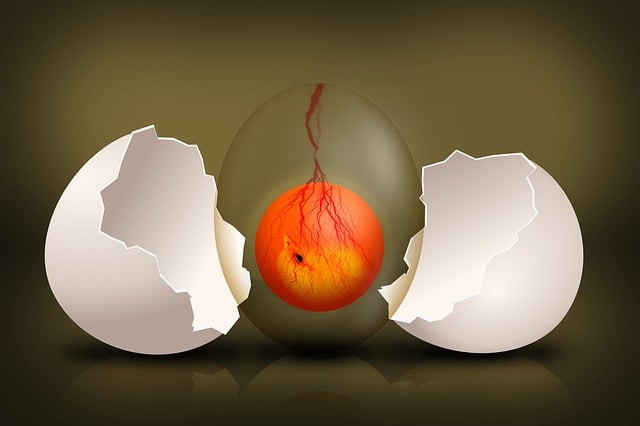Lifestyle choices significantly impact egg quality and fertility, especially as women age. A balanced diet rich in antioxidants, essential fatty acids, and key micronutrients optimizes egg health, while chronic stress and hormonal imbalances can deteriorate it. For individuals with low egg reserve, IVF with donor eggs offers a successful treatment option, prioritizing both fertility and genetic compatibility.
“Uncover the intricate relationship between lifestyle choices and female fertility, especially egg quality. This comprehensive guide explores how dietary habits, stress management, and hormonal balance significantly impact reproductive health. We delve into the science behind ‘understanding egg quality’ and its connection to optimizing fertility naturally. Furthermore, for couples facing low egg reserve, we provide insights into IVF with donor eggs as a potential solution, offering a holistic approach to navigating the fertility journey.”
Understanding Egg Quality: The Role of Lifestyle
Understanding Egg Quality: The Role of Lifestyle
Egg quality plays a pivotal role in fertility, especially as women age. It’s crucial to recognize that lifestyle choices can significantly impact this quality, potentially affecting fertility outcomes for both natural conception and assisted reproduction techniques like IVF with donor eggs for low egg reserve. Factors such as diet, exercise, stress levels, and exposure to environmental toxins can influence the development and maturation of oocytes (eggs).
A healthy lifestyle—encompassing a balanced diet rich in antioxidants and nutrients, regular physical activity, adequate sleep, and stress management—can optimize egg quality by promoting cellular health and reducing oxidative damage. Conversely, unhealthy habits like smoking, excessive alcohol consumption, or exposure to high levels of environmental pollutants may deteriorate egg quality, making it more challenging to achieve successful conception. Understanding these connections empowers individuals to make informed decisions that support their reproductive well-being.
Nutritional Strategies for Optimizing Fertility
Maintaining a nutritious diet is a powerful tool for optimizing fertility and enhancing egg quality, especially for those considering IVF with donor eggs due to a low egg reserve. A balanced diet rich in antioxidants, essential fatty acids, and key nutrients supports ovary health and can improve the chances of successful fertilization. Incorporate plenty of colorful fruits and vegetables into your meals to boost antioxidant intake, which helps protect eggs from cellular damage.
Additionally, ensure adequate intakes of folic acid, vitamin D, and zinc, as these micronutrients play a crucial role in egg development and maturation. Omega-3 fatty acids found in fish like salmon are also beneficial for fertility. They help reduce inflammation and support the production of egg-protective compounds. Remember, optimal nutrition is a key component of fertility optimization, especially when combined with other healthy lifestyle choices.
The Impact of Stress and Hormones on Egg Reserve
Chronic stress and hormonal imbalances can significantly impact a woman’s egg quality and fertility, especially in cases of low egg reserve. High-stress levels trigger the release of cortisol, a hormone that can interfere with the normal ovulatory process, leading to reduced egg production and impaired oocyte (egg cell) development. This is particularly relevant for individuals considering IVF with donor eggs as a treatment option for low egg reserve.
Hormonal fluctuations, such as those caused by thyroid disorders or polycystic ovarian syndrome (PCOS), can also affect the quality of eggs. Imbalanced hormone levels disrupt the delicate process of oocyte maturation and can result in an increased number of aneuploid eggs, which are often associated with infertility. Understanding these connections is crucial when exploring reproductive options like IVF, as it highlights the importance of managing stress and maintaining hormonal harmony for optimal egg health.
IVF with Donor Eggs: A Comprehensive Guide
IVF with donor eggs offers hope for individuals or couples facing fertility challenges, especially those with a low egg reserve. This treatment involves utilizing eggs from a donor, along with the recipient’s sperm, to create embryos, which are then transferred into the uterus. It’s particularly beneficial when traditional IVF methods using the patient’s own eggs are not recommended due to poor egg quality or quantity.
For individuals with low egg reserve, age can be a significant factor, as egg quality degrades over time. Donor eggs provide a solution by offering younger, high-quality eggs, significantly improving the chances of successful fertilization and pregnancy. This procedure is a well-established and comprehensive solution for couples seeking to build their families, ensuring the best possible outcome in terms of fertility and genetic compatibility.
In understanding how lifestyle factors impact egg quality and fertility, individuals can take proactive steps to optimize their reproductive health. Nutritional strategies, stress management, and hormone balance are key components in preserving and enhancing egg quality. For those facing low egg reserve, exploring IVF with donor eggs can be a viable solution, providing an opportunity for building families. By combining lifestyle optimization with advanced assisted reproductive technologies like IVF with donor eggs, individuals and couples can navigate their fertility journeys with increased confidence and hope.
